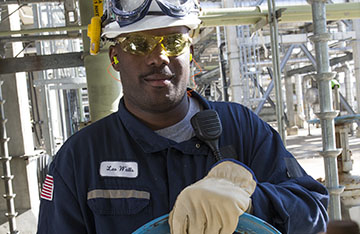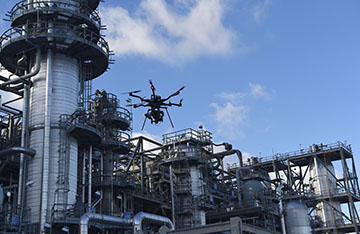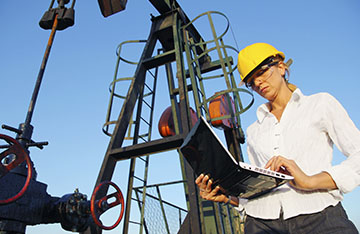API Launches New Certification Program to Improve Safety of Long-Seam Pipelines
API Launches New Certification Program to Improve Safety of Long-Seam Pipelines
The American Petroleum Institute (API) has launched a new certification program that will help pipeline operators use integrity testing of natural gas and oil pipeline to improve safety and avoid environmental releases.
This new Long Seam Pipeline (LSP) Certification program will set criteria for pipeline technicians to ensure that they possess the qualifications and adhere to best-in-class techniques required to perform in-the-field testing of pipelines using state-of the-art non-destructive examination (NDE), which is a non-invasive analysis technology that assesses a pipeline’s integrity without damaging the line itself.
Pipelines are vitally important for the transport of liquid fuels and other natural gas and oil products to meet the daily energy needs of individual consumers, communities, and manufacturers. With the anticipated expansion of liquefied natural gas (LNG) exports and plans to expand pipeline infrastructure to meet the global demand for clean-burning fuels, it is even more important that we have qualified technicians in the field. Because of consumer and industry reliance on pipeline infrastructure, it is important that NDE technicians are familiar with the latest technologies, methods, and techniques used to keep pipelines running efficiently, reliably, and safely.
This new certification program will verify that inspectors have the necessary knowledge to determine when a pipeline may contain features that must be addressed immediately. This type of analysis by an API certified inspector can provide critical information that allow operators to make operational and maintenance decisions that prevent safety or environmental incidents while saving time and money.
A key component of a pipeline integrity management program is follow-up and validation of an operator’s own in-line inspection (ILI) pipeline testing results. An API-certified technician, using appropriate NDE techniques for a more detailed assessment, can conduct a test pipeline operators can rely on to verify the severity of a pipeline crack or other potential defect identified through ILI.
Practical Exam
As part of the certification, a new exam will test inspectors’ ability to detect, characterize, and size features on long-seam pipeline welds. Furthermore, all candidates wishing to take the test must meet a set of prerequisite qualifications, that include possessing the American Society for Nondestructive Testing (ASNT) Level II certification, or international equivalent. ASNT Level II certifications are given to technicians that are qualified to set up and calibrate equipment and interpret and evaluate results according to applicable codes, standards and specifications.
The practical exam uses a set of samples with real world flaws most common to long-seam pipeline welds, with an emphasis on low to high frequency Electric Resistance Welded (ERW) pipelines. This new testing relies on the candidate’s ability to apply knowledge across complementary NDE methods, rather than only focusing on one set of pipeline testing techniques.
The testing method is recorded on the certificate if the technician passes, so that the operator can evaluate the technician’s skill accordingly.
Benefits of Certification
Once the technician passes the exam, the new LSP certification demonstrates the technician’s credentials and ability to perform field analysis of long seam pipelines.
This new API certification is the first step in improving the accuracy and reliability of ILI technology used in the field, while standardizing the skill of NDE technicians, who are relied upon for assessing pipeline integrity. This in turn will reduce the cost of field inspections and repairs for pipeline operators.
Overall, API’s new LSP certification will help improve safety and efficiency, while moving the natural gas and oil industry forward in its goal of protecting workers, the communities that host the industry and the environment.
How to Apply
Applications are now open and being accepted until Dec. 4 for the inaugural exam. The practical exam will take place in Houston, Dec. 14-18. Learn more about the LSP certification including additional exam periods.





